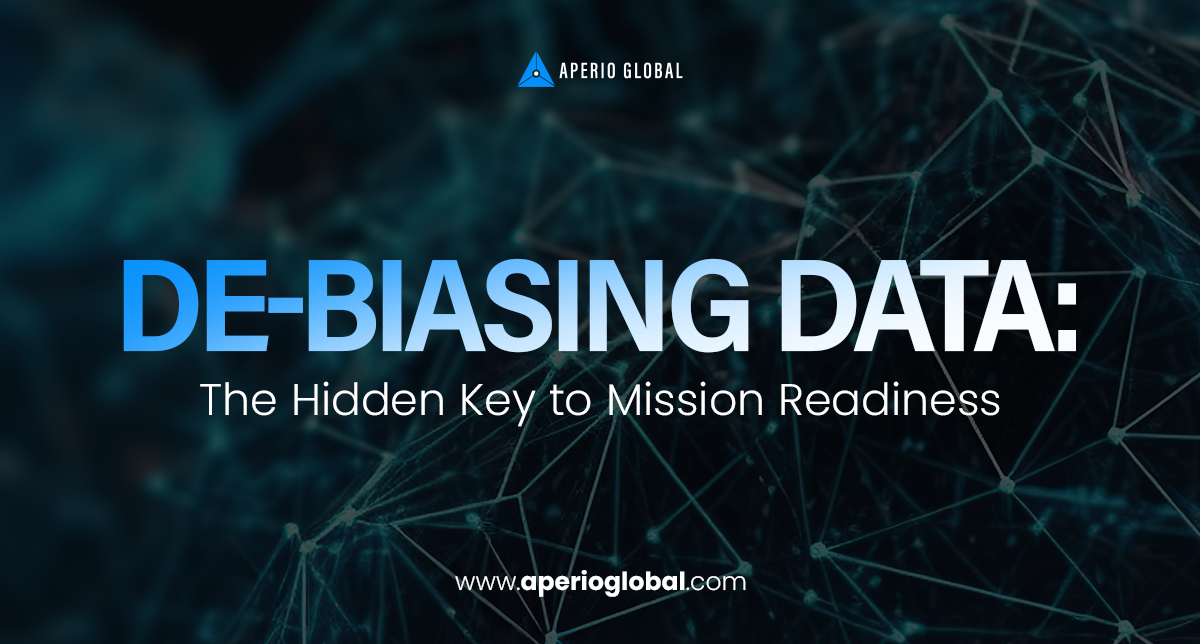
Why truth in data matters more than ever for national security, AI performance, and decision advantage.
In the modern battlespace, whether digital or physical, information is both a weapon and a shield. Every mission, every strategy, and every decision depends on the quality of the data behind it. Yet amid this deluge of information, an uncomfortable truth persists: most data is biased. It reflects the limits of what we can see, how we measure, and even what we expect to find. For organizations charged with defending nations or enabling critical operations, that bias is not a technical flaw, it’s a strategic risk.
Bias in data takes many forms. It can stem from incomplete sampling, from systems trained on historical records that mirror old assumptions, or from sensors tuned to detect certain signals and ignore others. When these datasets are fed into artificial intelligence or analytic frameworks, they produce outcomes that feel precise but are fundamentally skewed. In defense and intelligence contexts, such distortions can cascade into mission planning errors, misallocation of resources, or worse, misinterpretation of threat landscapes. The illusion of certainty becomes a silent adversary.
De-biasing data isn’t simply about cleaning up information; it’s about restoring truth to complex systems. At Aperio Global, this principle sits at the heart of our mission. We recognize that as AI becomes more integrated into command, control, and decision environments, the reliability of its insights depends entirely on the integrity of the data that feeds it. Our approach begins with a simple but powerful premise: you cannot solve for next if you don’t first clarify what’s true now.
This process involves examining data pipelines at their origin, understanding not just what the data says, but how it came to say it. We identify and mitigate hidden assumptions, measure confidence across sources, and engineer systems that can recognize when context is missing. In doing so, we move beyond raw accumulation toward discernment. The goal isn’t more data, it’s better data, structured, explainable, and actionable across mission sets.
The implications extend far beyond analytics. In a world where decisions must be made in seconds and validated across multi-domain operations, de-biased data becomes a force multiplier. It enhances predictive modeling, improves sensor fusion, and accelerates trust between human operators and intelligent systems. When analysts and commanders understand why a model reaches its conclusion, confidence replaces uncertainty, and readiness transforms from a reactive posture to an informed one.
The national security community is beginning to understand that AI supremacy will not come from processing power alone. It will come from epistemic accuracy, from the ability to see the environment clearly, unfiltered by noise or bias. This clarity enables not only faster decisions but fairer and more ethical ones, aligning human judgment with technological precision.
Ultimately, mission success depends on trust: trust in data, in systems, and in the humans who use them. De-biasing is not an abstract academic exercise; it is a discipline of truth-seeking. In a world defined by complexity, the organizations that master this discipline will see further, act faster, and decide wiser.
That is the essence of readiness, and it begins with data you can believe in.